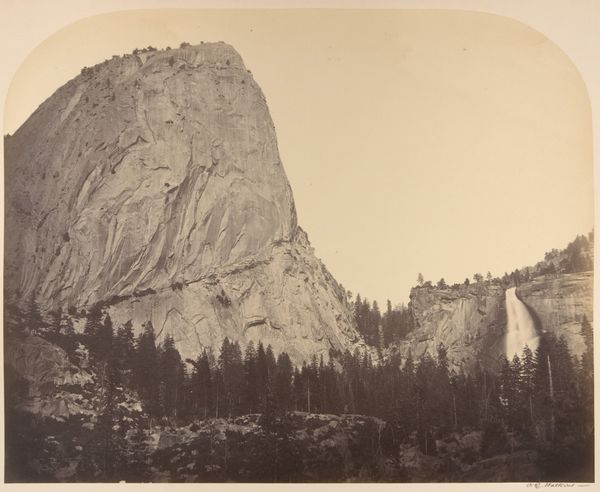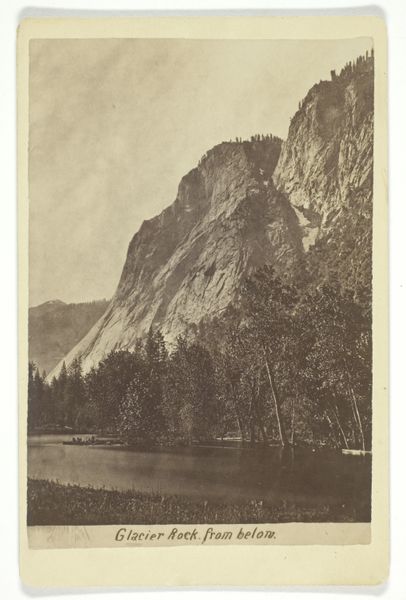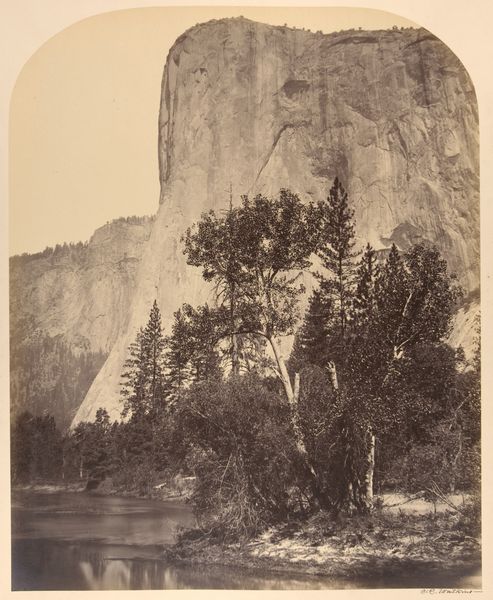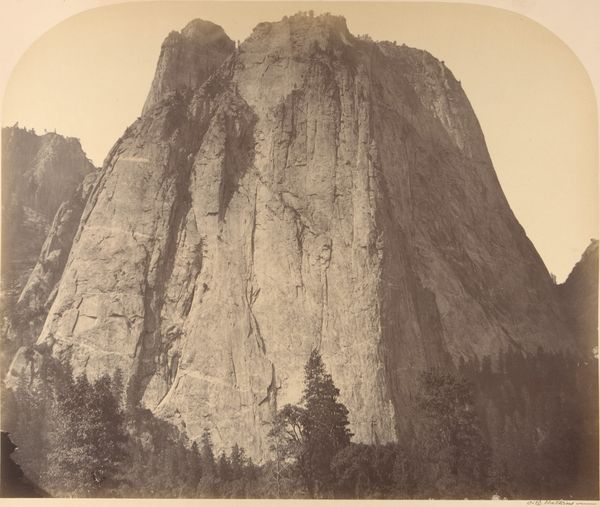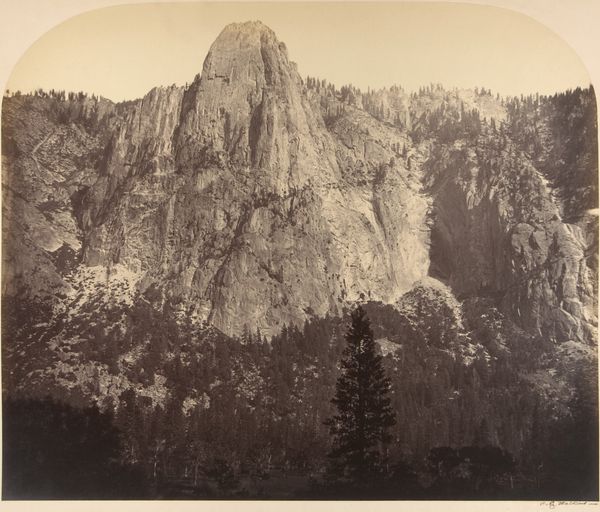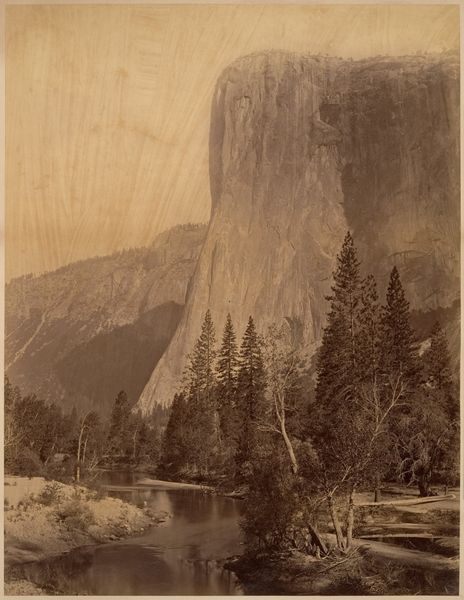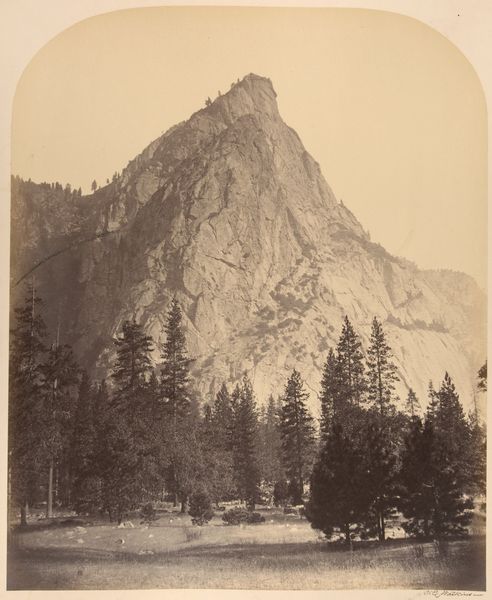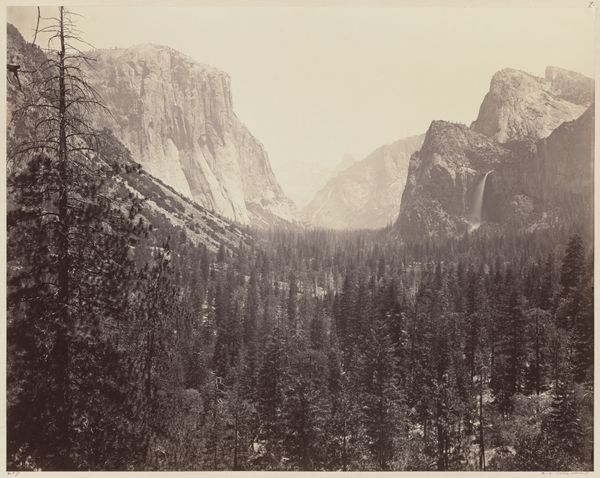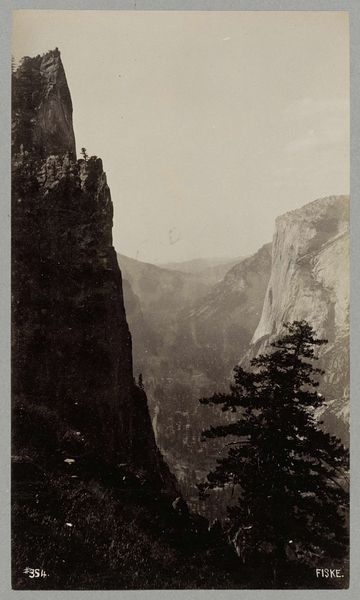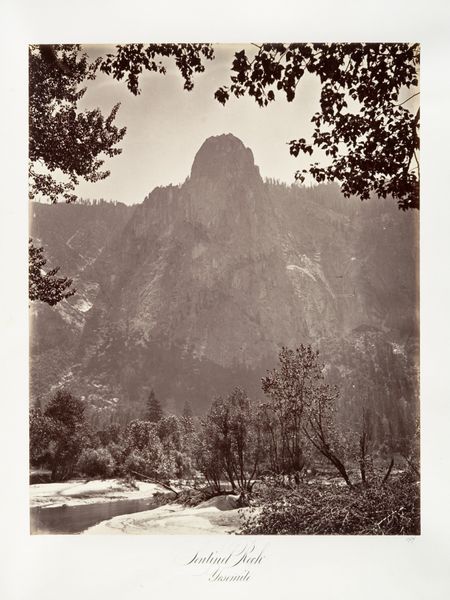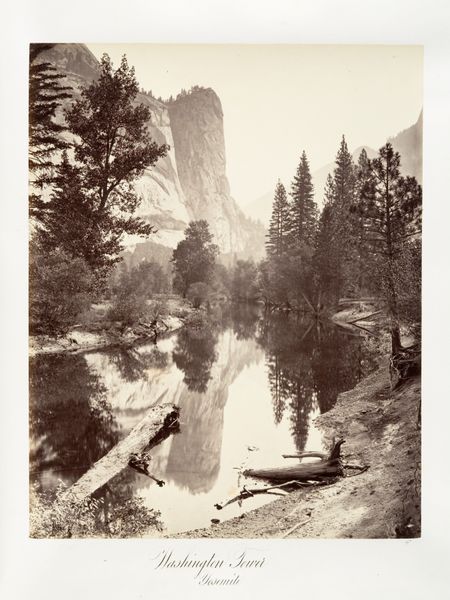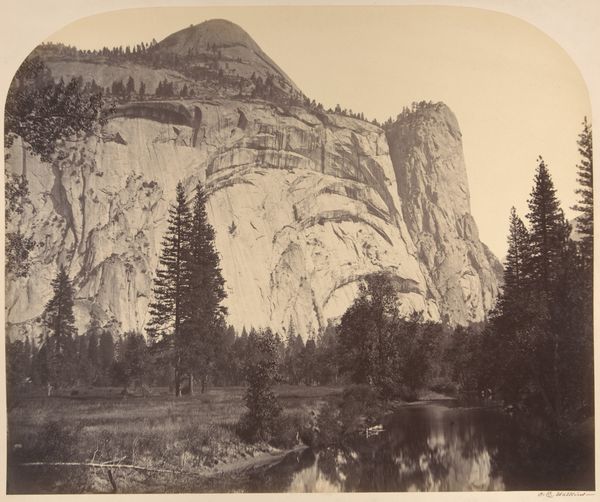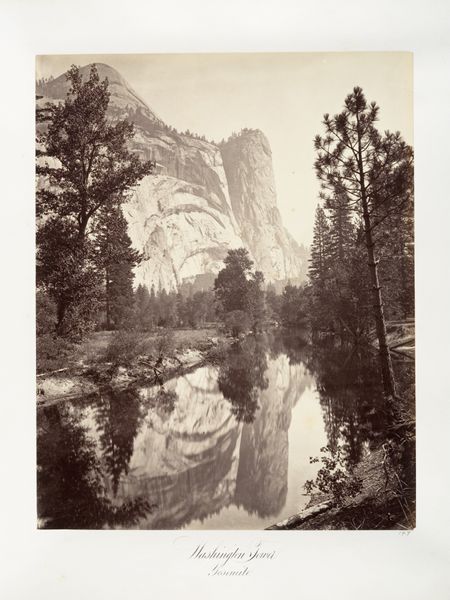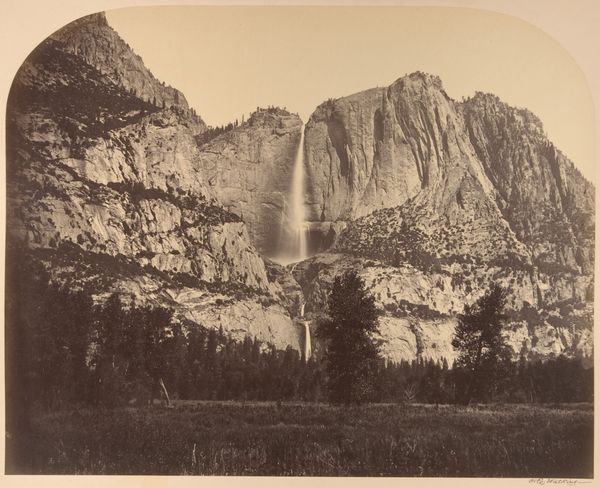
Cap of Liberty and Nevada Fall, Yosemite 1870 - 1874
0:00
0:00
photography, gelatin-silver-print
#
landscape
#
photography
#
gelatin-silver-print
#
hudson-river-school
#
watercolor
Copyright: Public Domain
Carleton Watkins captured this evocative albumen print of Yosemite's "Cap of Liberty and Nevada Fall" in the late 19th century. It invites us to consider the cultural and psychological weight of landscape. The prominent rock formation, christened "Cap of Liberty," echoes the Phrygian cap, a symbol of freedom and revolution since antiquity. From ancient Mithraic iconography to the French Revolution, this headwear has signified liberation from oppression. Watkins' photograph taps into this powerful lineage, associating the American landscape with ideals of freedom and opportunity. Consider how this symbol resonates differently across time. In ancient Rome, it represented freed slaves; in 18th-century France, the overthrow of the monarchy. Here, in the American West, it speaks of manifest destiny and the conquest of nature itself. There's a subtle, yet profound emotional undercurrent. By naming this monolith "Cap of Liberty," Watkins inextricably links the sublimity of nature with the potent, ever-evolving symbol of human aspiration and struggle. It leaves one contemplating the cyclical nature of history and the enduring power of symbols.
Comments
No comments
Be the first to comment and join the conversation on the ultimate creative platform.
